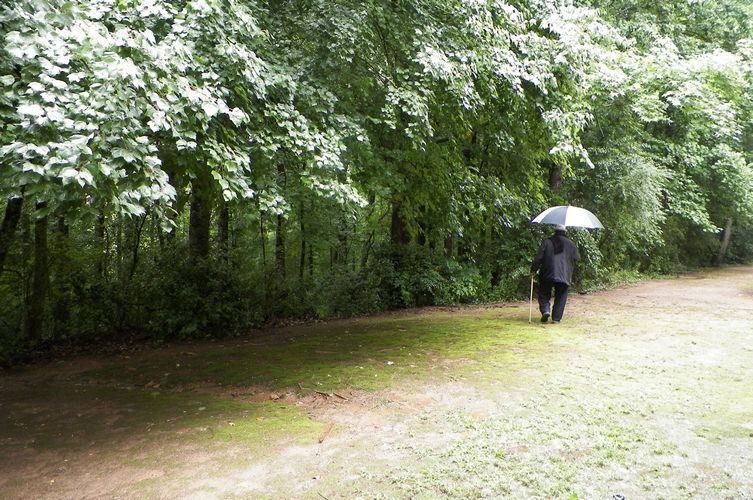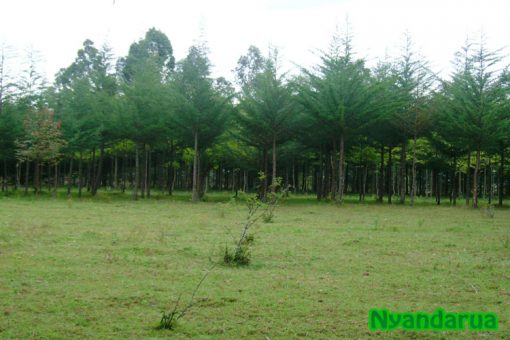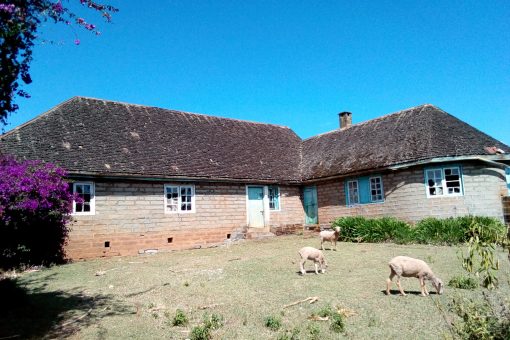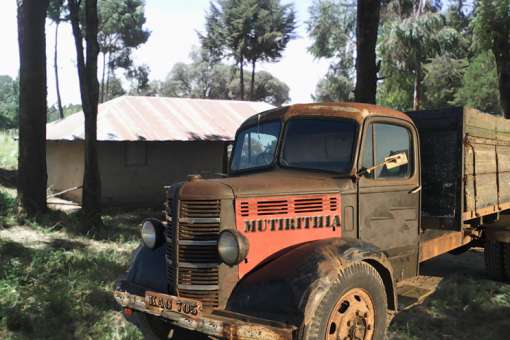Nyandarua rain was epic. It came down in buckets, with bolts of lightening and claps of thunder that terrified both humans and livestock. The rain came in season and on schedule like clockwork. God must have programmed it that way so that the Nyandarua people could schedule themselves the time to work their massive land. The rain patterns were consistent and predictable. Certain months were guaranteed to be wet, very wet indeed. But even in those very wet months, sunshine was guaranteed in the morning and early afternoon, while rain was guaranteed to start late afternoon and into the night.
My mother, who barely went to school, was like a Chief Meteorologists, she could put most weather forecasters to shame. During those rainy months, while working on the farm, planting, weeding or digging up potatoes, a little after 4pm, she mounted a slope and looked North. Nyandarua is mainly flat with gently rolling hills, you can see far off places on either direction. We had a far off neighbor to the North named Mwangi, whose farm was probably 10 kilometers away, but you could clearly see the red roof of his house from our farm. Mother always said that “our” rain came from Mwangi’s and nowhere else.
From our farm we could also see the full view of the Aberdare Ranges to the East. We saw streams of water running down the mountain especially during sunset. As kids, we looked for any excuse to stop work and go home. Whenever we saw clouds gathering over the Aberdares, we hastily announced: “mbura yuukite” translation “rain is coming”. Our mother was quick to correct us “tathii na mbere na wira, iiria mbura ti iitu” translation “keep working, that is not our rain”. She reminded us for the hundredth time that our rain comes from the North, never from the East of us. I hate to say it, but our Meteorologist mother was always right.
On some other late afternoons, she looked North towards Mwangi’s, studied the clouds like a pro and declared, “toonganiai waru naihenya mbura iria itanaitika thutha wa ithaa rimwe” translation “start gathering the potatoes before that rain gets here in an hour”. In an hour. The woman was that specific. True to her word, in about thirty minutes, we heard claps of thunder, the sky turned dark above us, and looking towards Mwangi’s, we no longer saw his red roof because the heavy showers of rain were already upon them. We quickly gathered our produce and farm inputs and rushed home as the swooshing sounds of showers got closer and closer. It was like an approaching train.
We had only minutes to spare, to bring in firewood into the house, close the chicken coop where the chickens had already gathered to shelter from the approaching rain, let the dogs off their leashes so they can shelter from the rain, bring in the newborn calves into their night shelter and close the gates so no livestock leaves the farm while the family is gathered around the fire sheltering from the rain. The rain came down heavily, pounding the iron sheet roof with deafening intensity. The rain continued throughout the night, soothing us into some deep sweet sleep and it gently came to a stop before daybreak.
The sun came up in the morning and continued shining throughout the day, until late afternoon when the cycle repeated itself over and over again until the rainy season ended.




